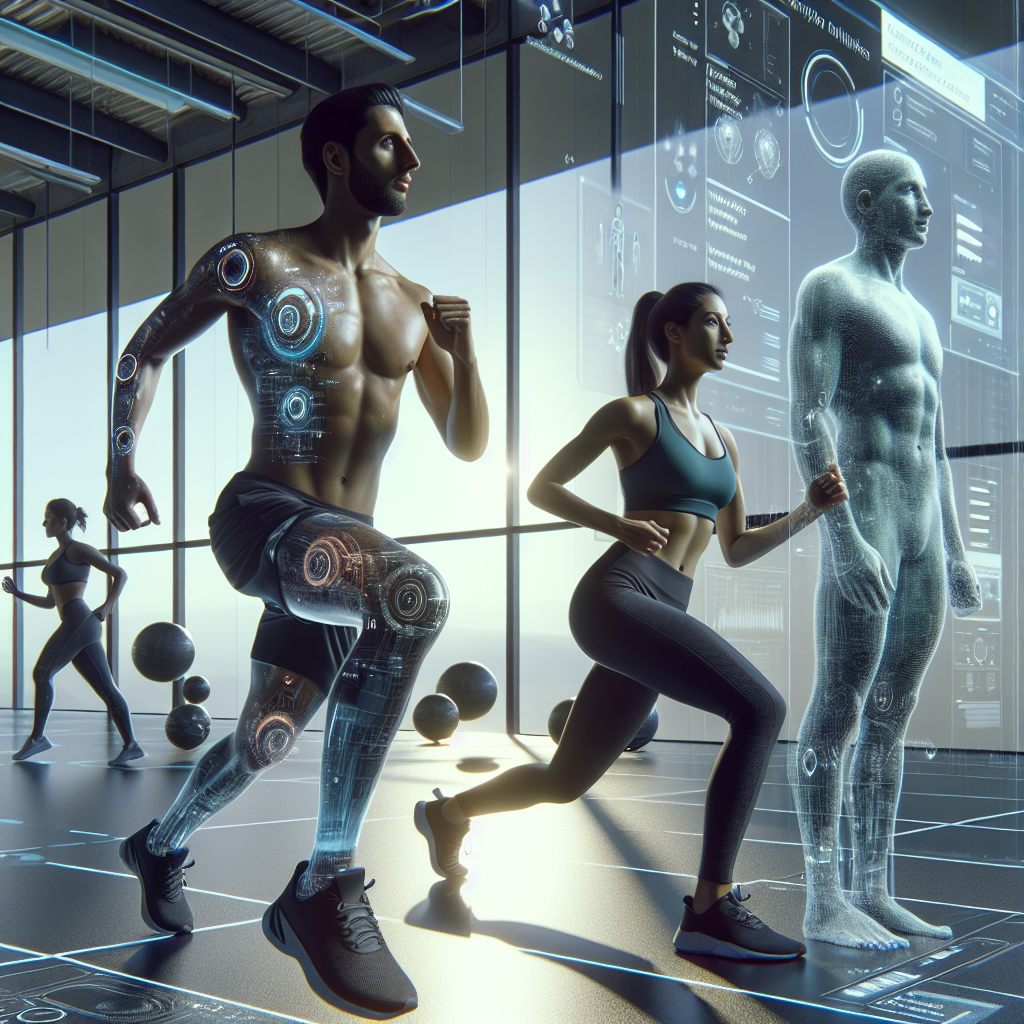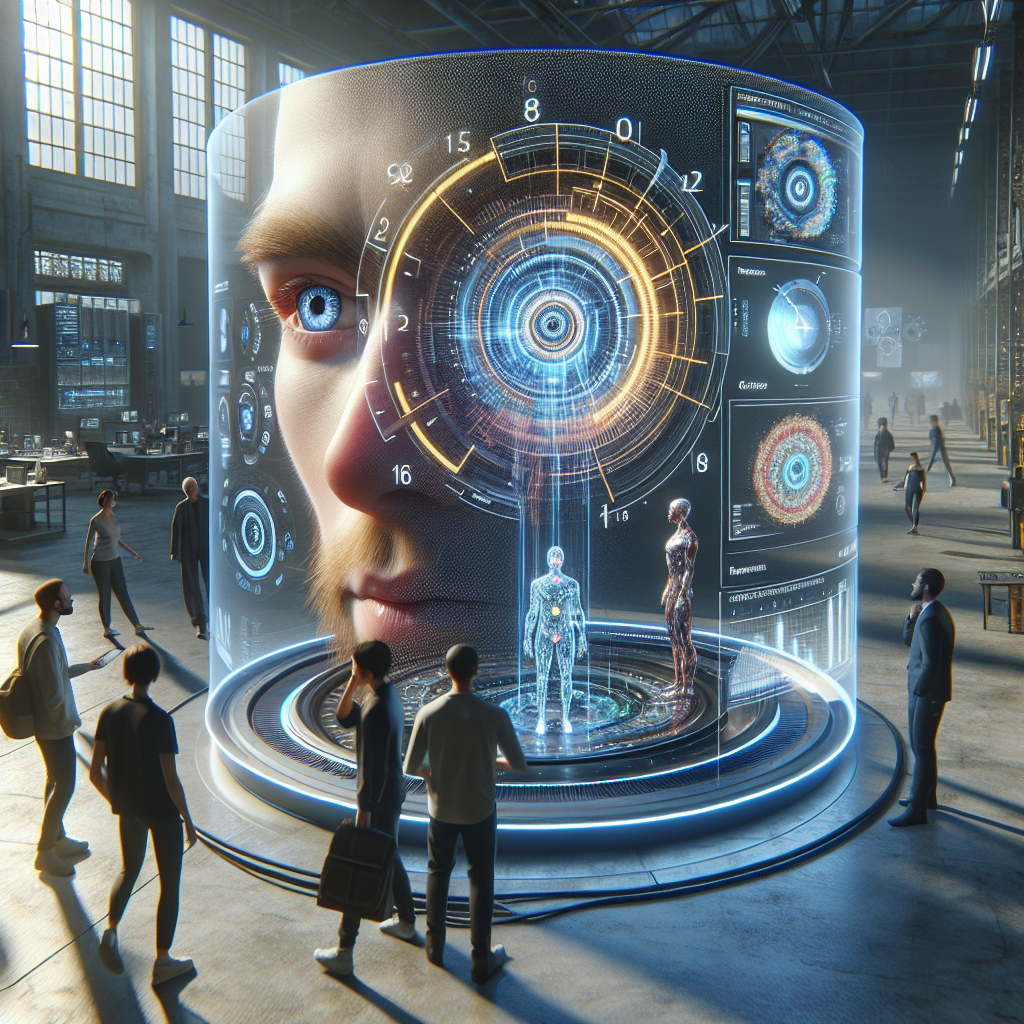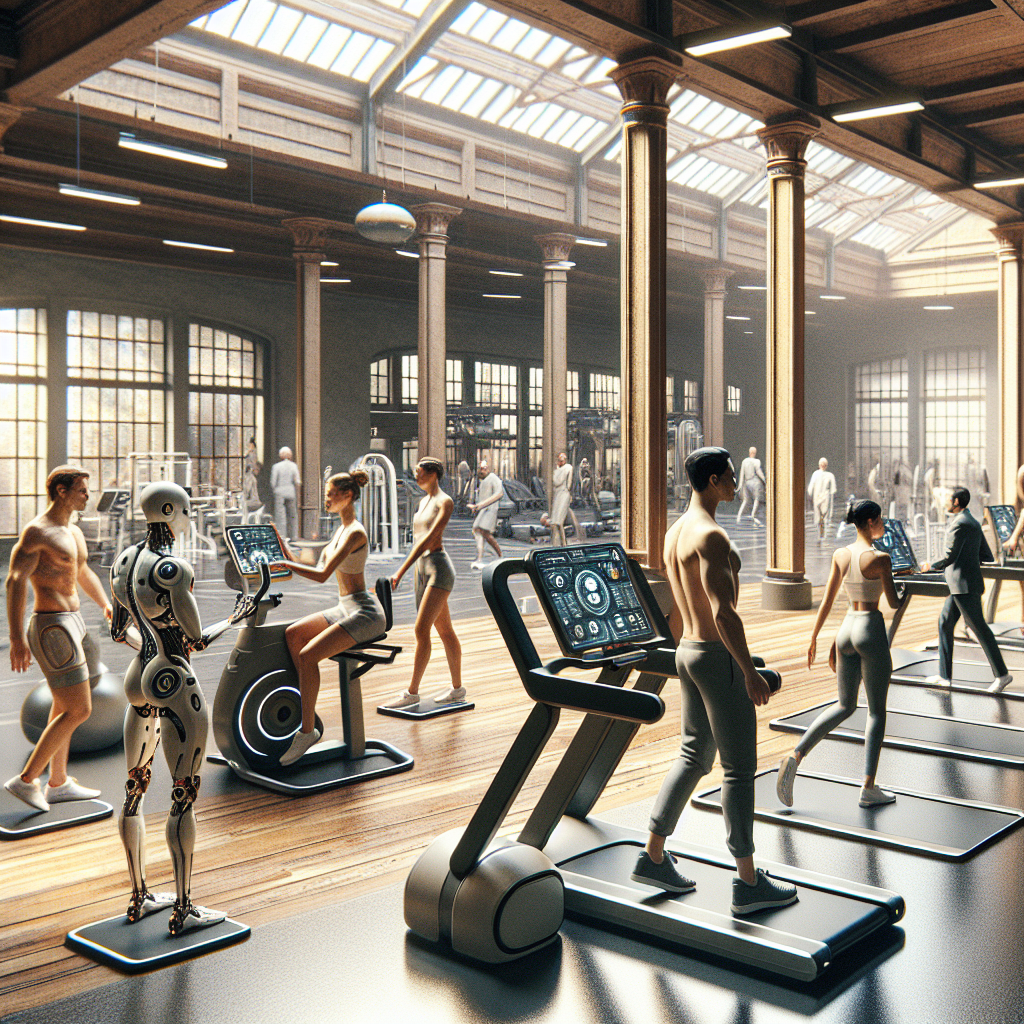Artificial Intelligence (AI) is revolutionizing personalized health and fitness plans by offering tailored solutions that cater to individual needs, preferences, and goals. Through advanced algorithms and data analysis, AI enables more precise and adaptive fitness regimens and health recommendations, transforming how individuals approach their wellness journeys. This integration of AI in health and fitness not only enhances user experience but also significantly improves outcomes by providing insights that were previously unattainable through traditional methods.
The Evolution of AI in Health and Fitness
The journey of AI in health and fitness has been nothing short of transformative. From basic step counters to sophisticated health monitoring devices, AI has become an integral component of modern wellness strategies. Initially, fitness technology focused on tracking and reporting basic metrics like steps taken, distance covered, and calories burned. However, with the advancement of AI, the scope has expanded to include predictive analytics, personalized coaching, and health risk assessments.
Historical Context and Technological Advancements
AI’s entry into the health and fitness sector can be traced back to the early 2000s, when wearable technology started gaining popularity. Companies like Fitbit and Apple introduced devices that could capture basic activity data. Over time, these devices evolved to incorporate AI algorithms, allowing them to provide personalized feedback and actionable insights.
Key technological advancements that facilitated this evolution include:
- Machine Learning: The ability of systems to learn from data and improve over time without explicit programming.
- Natural Language Processing (NLP): Enabling devices to understand and respond to human language, enhancing user interaction.
- IoT Integration: Connecting various devices and platforms for a seamless data exchange and comprehensive health monitoring.
Current Trends in AI Health and Fitness
Today, AI-driven health and fitness solutions are characterized by a high degree of personalization. These solutions leverage user data to create customized fitness plans, dietary recommendations, and wellness goals. Current trends include:
- Virtual Health Coaches: AI-powered assistants that provide 24/7 support, motivation, and guidance to users.
- Predictive Health Analytics: Analyzing patterns in health data to predict potential health issues and suggest preventive measures.
- Adaptive Fitness Regimens: Plans that adjust based on user performance and feedback, ensuring continuous progress.
How AI Personalizes Health and Fitness Plans
Personalization is at the core of AI’s contribution to health and fitness. By understanding individual needs and preferences, AI can design highly tailored programs that maximize results and user satisfaction.
Data Collection and Analysis
AI systems collect vast amounts of data from various sources, including wearables, health apps, and user inputs. This data encompasses:
- Physical activity levels
- Dietary habits
- Sleep patterns
- Heart rate variability
- Stress levels
Using advanced algorithms, AI analyzes this data to identify patterns and correlations that inform personalized recommendations.
Creating Personalized Fitness Plans
AI develops fitness plans by considering multiple factors:
- Individual Goals: Weight loss, muscle gain, endurance improvement, etc.
- Current Fitness Levels: Baseline assessments to tailor difficulty and progression.
- Health Conditions: Adapting exercises to accommodate injuries or chronic conditions.
- Preferences and Lifestyle: Customization based on preferred activities and available time.
For instance, an AI system might recommend low-impact exercises for someone with joint issues or create a time-efficient workout for a busy professional.
Dietary and Nutritional Customization
AI also plays a crucial role in crafting personalized dietary plans. By analyzing dietary habits and nutritional intake, AI can suggest modifications to improve health outcomes. Key features include:
- Caloric Needs Assessment: Calculating daily energy expenditure to recommend appropriate caloric intake.
- Macronutrient Distribution: Balancing proteins, fats, and carbohydrates according to individual goals.
- Dietary Restrictions and Preferences: Catering to vegetarian, vegan, gluten-free, and other specific diets.
AI-driven apps can also provide real-time feedback and meal suggestions, streamlining the process of maintaining a balanced diet.
Real-Time Feedback and Adjustments
One of AI’s most significant advantages is its ability to offer real-time feedback and adjustments. This dynamic interaction ensures that users remain on track and motivated:
- Performance Monitoring: Tracking progress and providing instant feedback on workouts.
- Adaptive Workouts: Modifying intensity and exercises based on current performance and feedback.
- Motivational Support: Sending reminders, motivational messages, and progress updates to encourage adherence.
This adaptive approach ensures continuous improvement and engagement, enhancing the likelihood of achieving fitness goals.
AI-Driven Tools and Technologies
The market is flooded with AI-driven tools and technologies that cater to different aspects of health and fitness. These tools leverage AI’s capabilities to provide comprehensive solutions that address various needs.
Wearable Technology
Wearable devices are at the forefront of AI-driven health and fitness technology. These gadgets track a wide range of metrics, providing valuable data for personalized insights:
- Smartwatches: Apple Watch, Samsung Galaxy Watch, and Fitbit devices offer comprehensive health monitoring, including heart rate, sleep, and activity tracking.
- Fitness Bands: Devices like Xiaomi Mi Band and Garmin Vivosmart focus on activity tracking with additional features like step counting and sleep analysis.
- Smart Clothing: Integrating sensors into clothing to monitor muscle activity, posture, and movement.
Health and Fitness Apps
AI-powered health and fitness apps provide users with personalized recommendations and insights. Popular apps include:
- MyFitnessPal: Tracks dietary intake and exercise, offering personalized feedback on nutrition.
- Strava: A social fitness app that tracks running and cycling activities, providing insights and competition.
- Headspace: AI-driven meditation app that offers personalized mindfulness and stress reduction plans.
Virtual Coaching Platforms
Virtual coaching platforms leverage AI to offer personalized fitness coaching and support:
- Noom: Combines AI and human coaching to offer personalized weight loss and wellness plans.
- Peloton: Offers AI-powered interactive fitness classes with real-time feedback and adjustments.
- Future: Provides personalized training plans and 1:1 coaching, leveraging AI for progress tracking and adjustments.
AI in Medical Devices
AI is also making headway in medical devices that monitor health metrics and provide insights into overall well-being:
- Continuous Glucose Monitors (CGMs): Devices like the Dexcom G6 provide real-time glucose monitoring for diabetics, with AI analyzing data to predict trends and recommend adjustments.
- Smart BP Monitors: Devices that track blood pressure and provide insights into cardiovascular health.
Challenges and Ethical Considerations
While AI offers numerous benefits in personalizing health and fitness plans, it also presents several challenges and ethical considerations that must be addressed.
Data Privacy and Security
The collection and analysis of personal health data raise significant privacy concerns. Users must trust that their data is handled securely and ethically. Key challenges include:
- Ensuring data encryption and protection against unauthorized access.
- Providing transparency in data usage and sharing practices.
- Complying with regulations like GDPR and HIPAA.
Algorithmic Bias and Fairness
AI systems must be designed to be fair and unbiased, avoiding discrimination based on race, gender, or other factors. Developers must ensure:
- Diverse datasets to train AI models, reducing bias.
- Regular audits and updates to algorithms to maintain fairness.
Accuracy and Reliability
AI-driven health and fitness recommendations must be accurate and reliable to ensure user safety and effectiveness. Challenges include:
- Ensuring the accuracy of data inputs from various sources.
- Verifying the validity of AI-generated insights and recommendations.
Despite these challenges, continuous advancements in AI technology and ethical guidelines aim to address these issues, ensuring that AI remains a trusted ally in personalizing health and fitness plans.
The Future of AI in Health and Fitness
The future of AI in health and fitness is bright, with ongoing advancements promising even more personalized and effective solutions. Emerging trends and innovations include:
Integration with Genomics
AI is expected to integrate with genomic data to provide hyper-personalized health plans based on genetic predispositions and potential health risks. This could lead to:
- Customized fitness and nutrition plans tailored to genetic makeup.
- Predictive insights into potential health conditions and preventive measures.
Enhanced Virtual Reality (VR) and Augmented Reality (AR) Experiences
AI will likely enhance VR and AR experiences in fitness, providing immersive and interactive workouts that adapt to user performance in real-time. Potential applications include:
- Virtual group fitness classes with AI-driven feedback and interaction.
- AR overlays for real-world workouts, offering guidance and motivation.
AI-Powered Mental Health Support
Mental health is becoming an integral part of overall wellness, and AI is poised to play a significant role in providing personalized mental health support through:
- AI-driven mental health assessments and insights.
- Personalized mindfulness and stress reduction programs.
As AI continues to evolve, its role in personalizing health and fitness plans will expand, offering unprecedented levels of customization and effectiveness. By harnessing the power of AI, individuals can unlock their full potential and achieve their health and fitness goals with greater ease and efficiency.
Unleash Your Potential with PurelyFit!
No trainers, no diet confusion, no gym necessary.
Are you ready to redefine your fitness journey? With PurelyFit, you can achieve your goals faster through AI-powered workouts and personalized nutrition, all without expensive trainers or complex diet plans. Our intelligent system tailors workouts to your specific objectives, offers over 600,000 recipes for any lifestyle, and tracks your progress in real-time.
Join the Revolution!
Transform your fitness journey today—experience smarter workouts and nutrition designed just for you. Start your journey with PurelyFit and see the difference AI can make!













